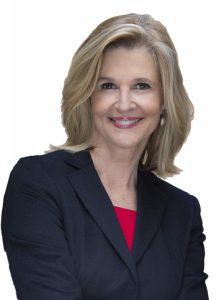The other victim of the Kavanaugh saga
September 25, 2019By Kathleen Parker
Every good story needs a hero, and the saga of Brett Kavanaugh’s rise to the Supreme Court has provided one: Leland Keyser.
She also became a victim when her longtime friend, Christine Blasey Ford, decided to hit refresh on a decades-old high school incident that apparently only Ford remembers.
Keyser is the other female student whom Ford named as having been at the small party where Kavanaugh allegedly pinned her down on a bed and groped her. She is also the friend who swore under penalty of perjury that she doesn’t recall such a party or, in fact, ever having met Kavanaugh. Her comments echoed those of the other partygoers Ford named, none of whom remembered such a gathering.
This isn’t what places Keyser on the heroes’ roster. What earns her that distinction is her steadfastness, at great personal suffering, in refusing to change her story despite what she describes as pressure to rethink her initial statement. According to a new book, “The Education of Brett Kavanaugh” by New York Times reporters Kate Kelly and Robin Pogrebin, some of Keyser’s erstwhile friends and acquaintances tried to persuade her to say she didn’t remember the party, not that it didn’t happen.
Keyser, reportedly a registered Democrat, has become increasingly convinced that Ford’s story isn’t true and doesn’t make sense, according to the book. Given their close friendship during their school days, isn’t it likely that Ford would have told her about such an attack? And, had Keyser been at the alleged party, since she already had her drivers license and often gave Christine a ride, wouldn’t she have taken her younger friend home?
According to the book, Ford’s team of friends and advisers apparently saw Keyser as an obstacle to Ford’s narrative and brainstormed ways for her to get onboard. The book cites a group text among Ford’s acquaintances from soon after her testimony. Cheryl Amitay, who attended the same girls’ high school as Ford, wrote: “Maybe one of you guys who are friends with [Keyser] can have a heart-to-heart.” And, “I don’t care, frankly, how f—ed up her life is.”
A man who had gone to a neighboring boys’ school chimed in: “Perhaps it makes sense to let everyone in the public know what her condition is.” To which Amitay responded, “Leland is a major stumbling block.”
Keyser, a former professional golfer who has undergone numerous operations on her back and neck, has suffered addiction during her adult life. Although recovering, she told Kelly and Pogrebin she was concerned that this history would be used against her if she didn’t come up with a more-acceptable recollection of events. When pressed, however, she refused to take the easy route and protect herself.
For her integrity and valor under perceived pressure, she has been punished. Even Ford seemed to turn on her old friend, mentioning Keyser’s “significant health challenges,” during her testimony, and seeming to suggest that her friend might have diminished capacities: “I’m happy that she’s focusing on herself and getting the health treatment that she needs.”
This may have been one of the sweetest condemnations in the history of tossing inconvenient friends under the bus. But, importantly, Ford planted a seed of doubt about Keyser’s credibility, which has been cultivated by the Times writers. On CNN’s “Reliable Sources” Sunday, Kelly pointed to Keyser’s “memory issues … because she has a history of substance abuse, which she acknowledges.”
Oof. What a gut punch. If no one in recovery can ever be trusted again, then the world of rehabilitative addiction therapy may as well shutter its doors.
In fact, Keyser remembers very well the summer of 1982, when Ford believes the alleged incident occurred. It was the year after her grandmother introduced her to golf and Keyser became consumed with the sport, according to another book published this past summer, “Justice on Trial,” by Mollie Hemingway and Carrie Severino. Keyser worked full-time in the golf pro shop at a Washington-area country club and had little time for socializing. Her hard work at school and in sports paid off with stellar grades, seven varsity letters, and acceptance to the University of Virginia, followed by a professional golfing career and a coaching position at Georgetown University.
Today, Keyser keeps a low profile, as was always her preference. She is, indeed, in fragile health from her injuries and surgeries. But Keyser can stand tall for having remained true to her convictions despite being exposed and pressured by those who seemed to have used her struggles against her. In my book, that’s heroic.
(c) 2019, Washington Post Writers Group













